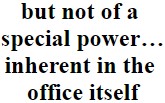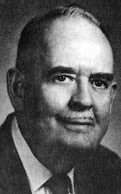
Back To Luther... and the old (German) Missouri Synod. Below are thoughts, confessions, quotations from a Missouri Synod Lutheran (born 1952) who came back to his old faith... and found more treasures than he knew existed in the training of his youth. The great Lutheran lineage above: Martin Luther, C.F.W. Walther, Franz Pieper.
Search This Blog
Wednesday, May 29, 2024
CM4c: Pieper's essay "Church & Church Government", in English (1896 Missouri convention)
Sunday, May 26, 2024
CM4b: Preger: Loehe & Kliefoth deny Justification (Pieper recommends Preger) (II)
Preger, Die Gesch. d. L. v. geistl. Amt, 1857 (fine collection of words of Luther, pp. 170—192; criticism of the position of Loehe, p. 192 ff., of Kliefoth, p. 216 ff.)
"No one can forgive sin in God's name, i.e. in representation of God (in repraesentatione personae Christi, to speak with the symbols), but he who has command and authority. But God's command and authority are with his office [of ministry]." (Loehe, Church and Ministry. New Aphorisms. Erl. 1853. p. 44)
According to it [Loehe's statement], the treasure of Christ is not powerful in and of itself, but only becomes so each time that a specially authorized person presents it.
After the greater part of this paper has given an attempt to prove the dependence of the concept of ministry and its history on the history of the doctrine of justification, it will not be wrong to ask whether Löhe's and Kliefoth's doctrines on ministry are not also based on a peculiar view of justification. There can be no question of a direct denial of the Lutheran doctrine of justification in the case of these men.
Thursday, May 23, 2024
CM4a: Pieper follows Walther on Church & Ministry (I); Pieper, "our greatest theologian"?
"… (Muenchmeyer, Loehe, Kliefoth, etc.) taught a strongly Romanizing doctrine of the ministry, namely, that the office of the public ministry is not conferred by the call of the congregation as the original possessor of all spiritual power, but is a divine institution in the sense that it was transmitted immediately from the Apostles to their pupils, considered as a separate “ministerial order” or caste, and that this order perpetuates itself by means of the ordination."
Sunday, May 19, 2024
CM3: Walther's Antitheses (against Loehe & Harrison) to Church and Ministry
*) These antitheses have been requested by dear fellow believers and confessors in Germany, partly for orientation with regard to their opponents, partly because in many cases it is only from the antithesis that the punctum saliens [prominent point] and the implications of a thesis come to light. In accordance with the expressed wish of some readers of this journal, we are sharing here the collection of antitheses from writings published in Germany, which was initially made for Germany. For those who desire American antitheses, we refer in particular to the publications of the then Synod of Buffalo and its elective cousins. A striking collection already appeared in the 9th volume of Der Lutheraner under the title: "Excellent tabular survey of some of Pastor Grabau's obvious errors, presented in his own words and compared with the false Roman, as well as with the pure Lutheran." (See No. 10 to 26.) [11, 12, 13, 14, 15, 16, 17, 18, 19, 20, 23, 25] [Original German pages: [10, 11, 12, 13, 14, 15, 16, 17, 18, 19, 20, 23, 25, 26]
"Walther's contention that Löhe held a less than quia view of the Lutheran Confessions and that our great and beloved co-founder of the Missouri Synod [Loehe] — despite his glorious strengths — specifically and knowingly rejected Luther's view of the Office of the Ministry at key points" [Church & Office, p. xiv],
Thursday, May 16, 2024
CM2: Pieper & Walther on "Church" vs. Harrison
Some have wanted to interpret the well-known words of the Smalcald Articles [Tr 24; Trigl. 510-511, 24]: “In addition to this, it is necessary to acknowledge that the keys belong not to the person of one particular man, but the (entire) Church”, as though here nothing were said of the “congregation” [“Gemeinde”], but only of the “Church” [“Kirche”], and indeed of the “entire Church”. But Walther rightly remarks: “To distinguish (here) between congregation and Church is a pure invention! [reines Fündlein]” (EN: LuW, 16: 179; DE: LuW 16, 179.) The Smalcald Articles themselves promptly define the “Church” which has all power as the local church [Ortskirche] or local congregation [Ortsgemeinde], when they go on to say” “And Christ speaks in these words, ‘Whatsoever ye shall bind’, etc., and indicates to whom He has given the keys, namely, to the Church: ‘Where two or three are gathered together in My name’, etc. “When the Smalcald Articles speak of the entire Church they intend to say, as the context indicates: not only this or that (member), but all members of the Church”. | The congregation elects, calls, and sends. Because the Keys belong to the "whole Church," and because many of the references that follow involve individual congregations or multiple local churches calling, I do not believe one can exclude the view that multiple congregations—the whole Church [i.e. including the Synod!] — can act to call. In fact, Walther's own practice in the case of his St. Louis Gesammtgemeinde (a group of four congregations that acted as one in calling pastors) would confirm this reality. |
Tuesday, May 14, 2024
CM1c: Harless's propositions (III) (w/ notes)
There are eighteen theses. They are as follows:
… …
§ 4. If the presence of the Holy Spirit working through the Word establishes, builds and sustains the Church, then it must first of all be determined what and where the Church is, and one must not allow oneself to be misled by a dangerous ambiguity of the word Church [Kirche; Harrison charges J. T. Mueller with this "ambiguity of the word Church", but is he, Harrison, the one who should be charged? ].
§ 7. …but the real existence of the true Church also remains an article of faith,
§ 10. This presentation of the Word in faithful confession, of the Word with its binding and redeeming power, is originally and fundamentally a vocation of all Christians, of the whole holy Christian people.
§ 11. The special vocation of the ministry [Amts] in the congregation can only be properly defined if a clear distinction is made between the priestly and the ministerial vocation, and if, on the other hand, the essence of the ministry of the Word is sought in nothing other than that which also belongs to every believing Christian by virtue of his priestly vocation. [Harless teaches against sacerdotalism, causing Pres. Harrison to lump him with the error of Hoefling.]
§ 12. …individuals may not take it upon themselves to do this [ministry] arbitrarily in public before the congregation, but must wait for a special election or calling, just as the faithful congregation [Gemeinde] already properly considers it its duty to provide for such an election or calling. [Harrison charges Harless with an infraction of this.]
§ 14. While the believing church [Gemeinde], the Christian people, awaits the order and appoints the offices established by Christ, in doing so it is not rooted in a law of order or a rule of separation, but in a Word of promise, by virtue of which the Lord promises at all times to give His church [Gemeinde] the special gifts needed to fulfill the special offices; and the heir of this promise is not a special, legally established class, but the whole believing church [Gemeinde], which the Lord separates through the fulfillment of His promise.
§ 15. Therefore one can speak of a special authority [Vollmacht], also of a special gift of the office [Amtsbegabung], but not of a special power and grace inherent in the office itself; but where the office has and brings power and grace, it is rooted in the Word, which the office has to provide, and all the power and grace of the Word is rooted in the living Christ, who is the giver of the Word and Spirit and the founder of the office. [Harless against the sacerdotalism of Kliefoth and Loehe]
§ 17. These are the main features of the doctrine of Church and Ministry as it applies in the congregation [Gemeinde] of believers and presupposes a believing congregation or church [Gemeinde oder Kirche], a holy Christian people.
§ 18. According to the model of the order of the believing congregation, "external Christendom", the community of ecclesiastical signs or the visible church, rightly establishes its order; only that in doing so, much weakness and error, sin and shame, rioting and trouble can also occur (see thesis 8). This sorrow must not cause the faithful to separate from a church that still has a pure Word and Sacrament, but must remain there, fighting and contending until the Lord gives victory to the church.
* * * * * *
These are Harless's theses. It may be that these theses give rise to some unanswered questions. We must therefore refer again to the enclosed testimonies from Luther's writings, in which further elaboration is to be found, and after attentive comparison of which the reader will hardly be left without an answer to a question which directly concerns the matter.
President Matthew Harrison is not actually in agreement with Walther.
In connection with the Missouri Synod centennial five years ago [1947; now 77 years ago] there was a trace of hero-worship in some quarters in speaking of Johannes Konrad Wilhelm Loehe (1808-1872). One heard the complaint that he had previously been “the forgotten man” in Missouri Synod history, but must now come into his own as the great sponsor of confessional Lutheranism in America.
Now we are by no means unaware of the historical significance of this great man for the confessional Lutheran awakening in Nineteenth Century Germany, nor do we minimize the great services in the early history of the Missouri Synod rendered by many of those whom he was instrumental in sending to America; neither do we find any lack of an objective evaluation of these factors on the part of our spiritual fathers in earlier generations of the old Missouri Synod. But his decidedly hierarchical view of the ministerial office (cf. a very competent treatment of this point in the current December Confessional Lutheran [1952 p. 137]) and his later weakening of the obligation of confessional subscription and chiliastic aberrations also belong to an objective evaluation of his significance. In the matters at issue between Wilhelm Loehe and Dr. Walther we consciously stand with Dr. Walther and against Pastor Loehe, as Walther and not Loehe was standing with Scripture.
It is striking how McLaughlin's description of the free-falling LC-MS of 77 years ago matches the situation of the LC–MS today — Loehe over Walther.


%20crop.jpg)
.jpg)



